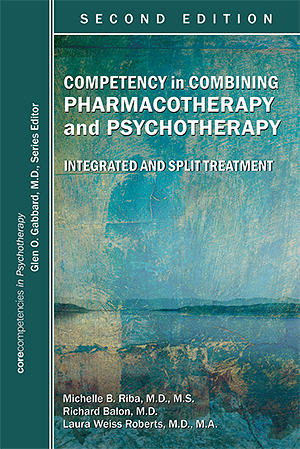Chapter 8.Evaluation, Monitoring, and Supervision of Integrated and Split/Collaborative Treatment
Sections
Excerpt
The aim of graduate medical education is to form physicians who can provide care expertly and compassionately—in short, to produce competent physicians. In the preceding chapters, we discussed how to acquire the necessary skills to become competent in planning and delivering integrated and split/collaborative treatment. But how does one ensure that the educational process is heading in the right direction and that psychiatry residents will accrue and ultimately possess the required skills and knowledge to competently practice integrated and split/collaborative treatment? Residents’ progress in acquiring these skills and knowledge sets has to be adequately and appropriately supervised, monitored, assessed, and evaluated. Competency has to be properly documented, not only because the Review Committee and the program reviewers will be looking for the ways competency is documented in each area but also because properly constructed documentation of the process will allow training programs to appropriately structure the educational process and address deficiencies and other issues requiring improvement or correction.
Access content
To read the fulltext, please use one of the options below to sign in or purchase access.- Personal login
- Institutional Login
- Sign in via OpenAthens
- Register for access
-
Please login/register if you wish to pair your device and check access availability.
Not a subscriber?
PsychiatryOnline subscription options offer access to the DSM-5 library, books, journals, CME, and patient resources. This all-in-one virtual library provides psychiatrists and mental health professionals with key resources for diagnosis, treatment, research, and professional development.
Need more help? PsychiatryOnline Customer Service may be reached by emailing [email protected] or by calling 800-368-5777 (in the U.S.) or 703-907-7322 (outside the U.S.).



